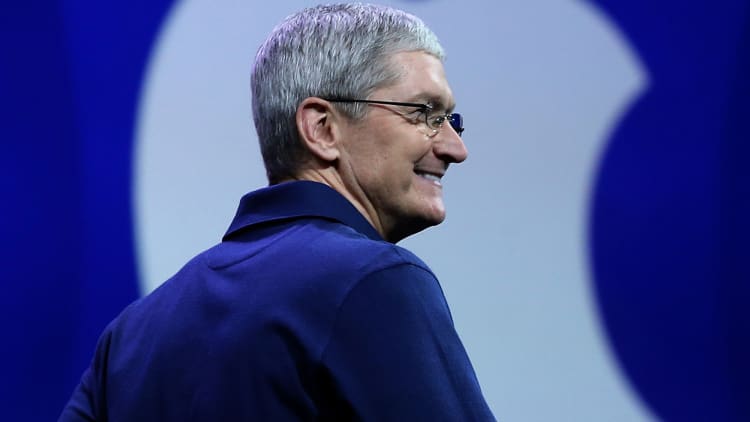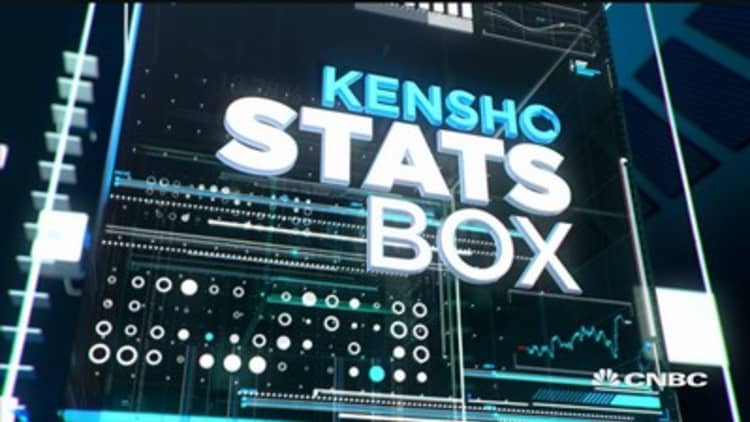
Even after a 33 percent surge to about $800 billion in market value this year, Apple's shares appear cheap going by the most widely used method to value stocks: the price-earnings ratio.
In fact, if you applied the same P/E ratio to Apple as the rest of the stock market, the technology juggernaut's shares would be 19 percent higher, according to calculations by Bespoke Investment Group. Applying the same multiple as rest of the S&P's tech sector gives Apple an estimated value more than 30 percent higher than where it is right now, according to Bespoke.
Source: Bespoke Investment Group
"Apple (AAPL) has had quite a run, but it's still on the cheap side relative to the broader market," says the Bespoke report. "If AAPL had the same P/E ratio as the S&P 500, it would have a share price of $184, while a multiple similar to the technology sector would translate to a price of $211."
But alas, Apple closed Tuesday at $154.45 a share with a trailing P/E of just above 18. The currently has a trailing multiple of 21.6 and the technology sector trades for a trailing P/E of 24.7.
"AAPL has a lower P/E ratio than nine of the 11 S&P 500 sectors," the Bespoke report added.
So why are investors willing to pay more per earnings for stocks that, on average, are going to grow profits at a slower pace than Apple?
That question has plagued Apple investors for a while.
It didn't always use to be this way. During the last bull market, Apple traded at a P/E ratio in the high 30s. The multiple collapsed with most other stocks during the housing crisis, but then retook that multiple above 30 as the latest bull market began.
Apple trailing P/E, 15 years
Source: FactSet
But then something happened. Apple began hitting its stride with successful recurring models of the iPhone and in the process began accumulating an unprecedented amount of cash. In 2012, it declared a dividend, something growth stocks that wanted to stay in the good graces of growth managers didn't do.
Investors began treating the shares as an asset class because of the company's sheer size and cash hoard. A safe place to park money even. The cash reached a record $256.8 billion in the fiscal second quarter of this year.
But it's not like the company stopped growing, or will stop in the near future. Bespoke points out that Apple will increase earnings by 15 percent over the next one year, according to analysts' estimates.
It's possible investors just don't know how to value a company with this much cash and earnings power because they've never seen something like this before. Its market cap is the largest in the world of any public company.
Despite this, UBS did some analysis last month and found incredibly that investors still "underown" Apple. The stock makes up 1.3 percent of global active managers' portfolios, on average, according to UBS. Yet its average weighting in global benchmarks is 2 percent, UBS shows.
It's unclear what the company or Wall Street analysts can do to get investors to value Apple in the same way they do other stocks. Some speculate it's not up to them, but President Donald Trump and Congress.
A repatriation tax break would free up the majority of that cash position collecting dust overseas to be brought back to the U.S. and used by Apple for R&D, takeovers and capital distribution.
For now, the stock remains in a valuation purgatory.
Watch: Apple's movement after developers conference



